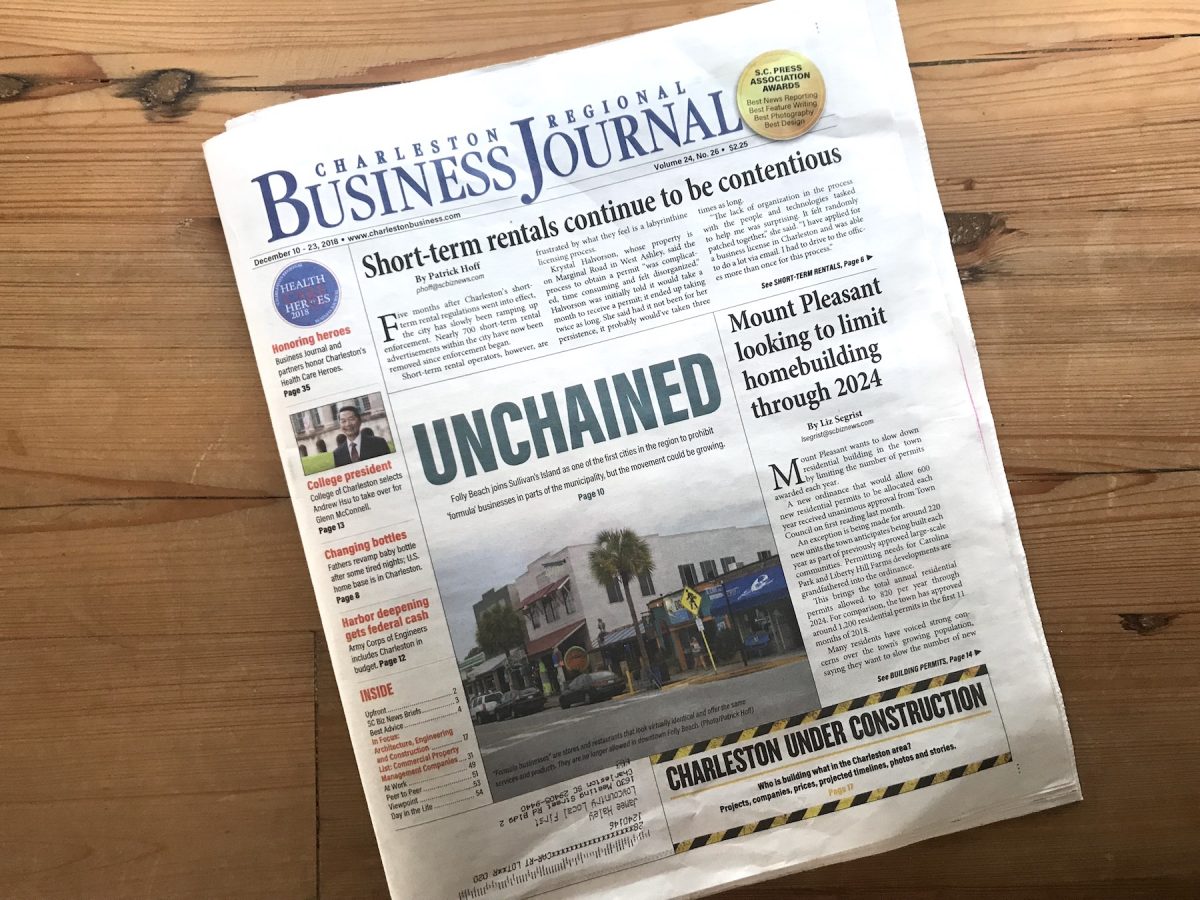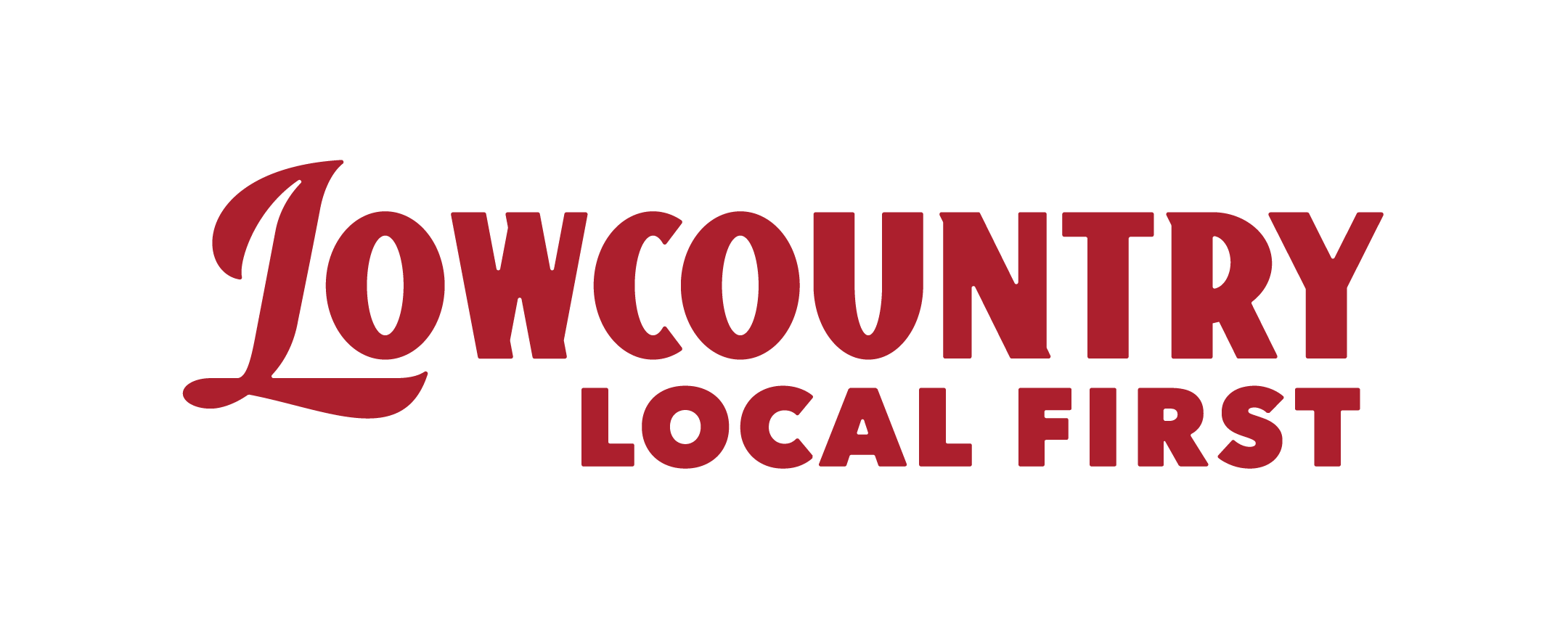Folly Beach Restricts 'Formula' Businesses

The following article ran in the Charleston Regional Business Journal, Volume 24 / No 26 print issue, that came out on December 10, 2018. Written by CRBJ staff writer Patrick Hoff.
If you’re looking to buy a Big Mac, you won’t find it in downtown Folly Beach.
And that will continue to be the case after Folly Beach City Council voted to bar so-called formula businesses in certain areas of the municipality.
The Institute for Local Self-Reliance, a nationwide nonprofit that advocates for sustainable community development, defines “formula businesses” as stores and restaurants that look virtually identical in physical appearance and in the services and products they offer.
Stacy Mitchell, co-director at the institute said “formula businesses” is used over “chain businesses” because restricting formula businesses doesn’t stop a chain from opening – but it does require the chain to open a business that’s distinct from its other outlets.
“Most chains have no interest in actually doing that, so most chains don’t bother to create a unique version of themselves in places that prohibit these stores,” Mitchell said.
Spencer Wetmore, Folly Beach city administrator, said Folly Beach’s ordinance is a logical next step from the city’s restriction on drive-through establishments.
“For a long time, every comprehensive zoning plan that we’ve had, every election that we’ve had, a theme seems to be keeping Folly funky,” she said.
Folly Beach’s ordinance is focused mainly on restricting formula businesses downtown, and allowing those types of businesses to continue populating the northernmost part of the city.
“Our corridor commercial district, which is what’s zoned along Folly Road, is intended to be a more intense commercial use,” Wetmore said.
“It’s intended to have larger retail like the Harris Teeter that’s out there. It’s not designed, or its not zoned to have the same low-intensity commercial uses as our on-island uses are.”
The gas station and adjoining Subway restaurant are allowed to stay, classified as “legal nonconforming,” but Wetmore said if either of those establishments was to close down, it would take an act of City Council to reopen them as formula businesses.
“Obviously if a hurricane came through or something, the island is interested in having a gas station here; so if something were to happen, we could go back and give that lot permission to have a gas station there,” she said. “But we weren’t interested in having a whole bunch of gas stations.”
Lewis Dodson, president of the Folly Association of Business, said he likes that the ordinance requires formula businesses in Folly Beach to fit the community’s aesthetic.
“I like this idea that even if it is a Starbucks of whatever, it would be a Folly-centric Starbucks, and they would find a way to market it that way,” said Dodson, who also owns Drop In Bar & Deli.
He said he has “mixed views” on the ordinance overall, though: As a business owner, he wants to protect his business, but he generally believes in letting the market dictate what works and what doesn’t.
“It didn’t seem very necessary currently,” he said, adding that he hasn’t heard about an influx of chains coming to Folly Beach.
“Maybe City Council saw something coming down the pipeline that the business association hasn’t,” Dodson said.
‘One of the most effective tools’
The idea to restrict formula businesses was brought to Folly Beach by Lowcountry Local First. Operations Director Lauren Gellatly said the nonprofit first advocated for an ordinance against formula businesses in the Cannonborough-Elliotborough neighborhood of Charleston in 2016, because neighborhood groups had expressed interest.
“Our goal is to push this forward in communities that want it,” Gellatly said.
“We want to make sure that residents and businesses are on board in an area before we’re really pushing it at a policy level.”
Ultimately, though, the efforts failed; Charleston city staff said they didn’t think it was legal, “which of course is not true,” Gellatly said.
More that 20 other communities have passed some type of restriction against formula businesses, including Sullivan’s Island, and an appeals court in California ruled in 2003 that because it requires every business to be distinct, it doesn’t violate discrimination or interstate commerce laws.
“The way that it starts to become problematic legally is if you are actually mandating local ownership,” Gellatly said.
Some municipalities’ restrictions allow formula businesses as long as community members are notified and don’t ask for a public hearing; others, like Folly Beach, ban them completely.
“This particular type of ordinance is really one of the most effective tools that we’re seeing around the country for creating and protecting unique independent business districts,” Gellatly said.
Matt Cunningham, partner at Civic Economics, an economic analysis and strategic planning consulting firm, said that his research indicates independent businesses have a greater impact on the local economy, because they generally hire more local people, their profit stays local, and they participate in more charitable giving locally.
In a 2013 study sponsored by Lowcountry Local First and Kiawah Island-based Indigo Books, Civic Economics found that independent retailers in the Charleston area recirculated 57.8% of their revenue in the local economy, as opposed to national chain retailers recirculating 13.6% of their revenue locally.
The study found national chain restaurants support the local economy slightly more than retailers, recirculating 30.4% of their revenue, but thats still less than half of the 68.8% of revenue that local restaurants recirculate.
Cunningham said one benefit of national chains, particularly niche ones such as Anthropologie, is that they can help revitalize a struggling retail district by drawing people in.
“But if you already have a retail district that’s drawing enough people, and it’s healthy, and you have normal occupancy, you’d rather have them filled by a local independent business than a national chain,” he said.
Looking Elsewhere
Gellatly said Lowcountry Local First is in discussions with businesses in the Park Circle area of North Charleston about trying to pass an ordinance restricting formula businesses there.
Mat Tunstall, co-owner of Stems and Skins wine bar, is one of the business owners leading the formula-free charge in Park Circle.
He said that they idea came from discussions with Lowcountry Local First about ensuring residents and business owners have a voice in their neighborhood – especially as more movies and TV shows are filmed in Park Circle and the area becomes more popular.
“We think that keeping this unique vibe up here is very important, and when you start allowing big box stores to come in, whether it’s retail or hospitality or restaurant, you start to see kind of a dumbing down of a neighborhood, or every neighborhood looks just like another one,” Tunstall said. “So that’s part of the motivation, I think, to keep this neighborhood unique.”
Tunstall said conversations with other business owners about a potential ordinance, which he said would most likely be focused on keeping out formula restaurants, have been positive so far.
“People in this neighborhood are proud of their neighborhood,” he said. “They’re proud of the uniqueness, the… controlled rate of growth, and they get a lot of say over what ends up here, whether they show up for it or patronize it.”
Gellatly and Tunstall said the next step is to get input from Park Circle residents about how they feel. Lowcountry local First held a meeting with one of the neighborhood groups last month, which Gellatly said went well.
“We’re now going to be reaching out and doing some more coalition-building outreach to see if it’s something that’s really desired in the community,” she said.
Gellatly and Tunstall both said they’ve already heard about opposition from elected officials.
“We have heard from some elected officials in North Charleston that there isn’t necessarily an existing appetite for this, and there’s a feeling it is in conflict with property rights,” Gellatly said, “so we have heard that – hence our focus now on really talking to the community and the residents and the business owners and to see if there is a broad level of support. If that is the case, we’re hoping all of those residents and businesses would speak out and tell their elected officials that that is something that they do want.”
Tunstall said he’s hoping an ordinance could be passed something next year.
Gellatly said she could also see restrictions on formula businesses becoming part of the revitalization of West Ashley.
“There’s great areas already, like Avondale, but some of the areas do have more chains,” she said. “I think there’s a real applicability and opportunity to use this somewhere else because we’ve heard they want to replicate Avondale in other areas of West Ashley, and I think this could be a really great tool to do that.
